The last mobility of our project is behind us. This time we explored Greece. Our hosts from the primary school 4o Dimotiko Schoolio from Edessa made sure that we felt comfortable and very welcome throughout the whole mobility.
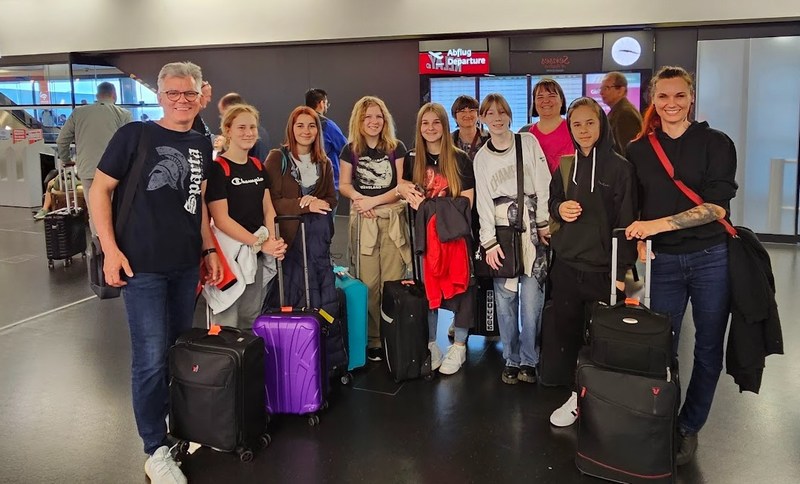
This time the teachers of the Slovenian Erasmus+ team invited the girls from 7th grade to the mobility, who have taken great care of our project from the very beginning. They were happy to do the tasks and had great ideas on how to improve the final product.
Our departure day was on May 21st, 2023 and we flew from Vienna in Austria to Thessaloniki, Greece.
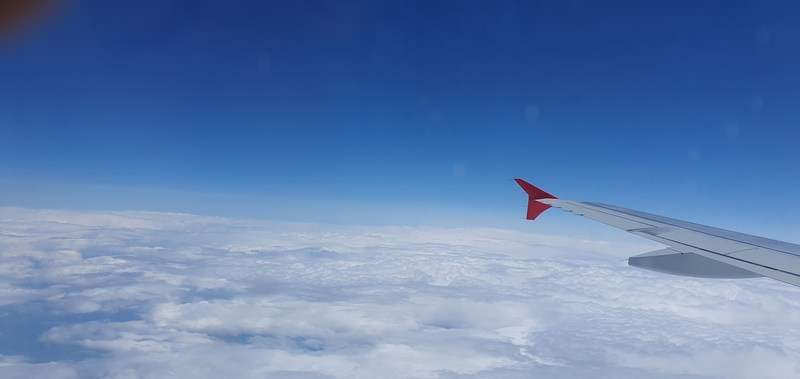
The first night was spent there, so we had the opportunity to see the second-largest Greek city, which has around one million inhabitants. On Monday, we met with teachers Maria and Sotiris, who are the coordinators of the Erasmus+ project “Our Cultures – Our Treasures” in Greece. They took us around Thessaloniki and taught us about the history of this city.
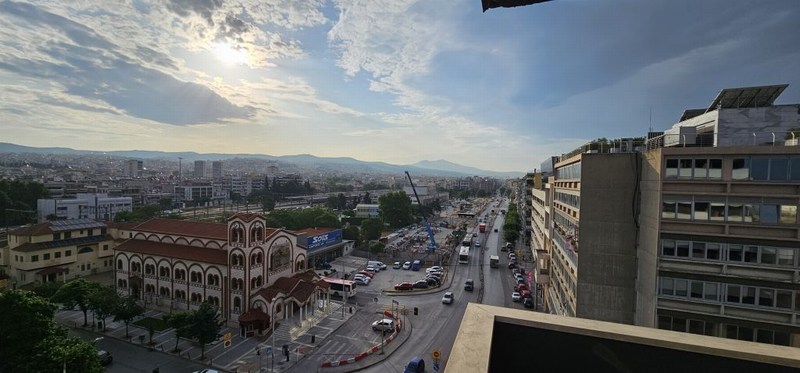
We visited the White Tower museum and saw a lot of objects from the ancient period. The girls were most attracted to the coins. The time passed by quickly and we had to go to Edessa. The part of the country where this city is located is called Macedonia.
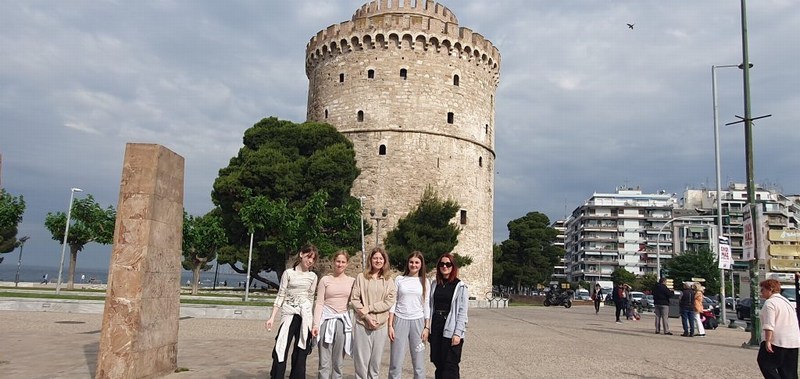
On the way to our final destination, we stopped at the Pella Archaeological Museum, which is located near the site of the ancient Macedonian palace. Mosaics, statuettes, furniture, and clothes took us into the history of Central Macedonia. Upon arrival, we saw an important exhibit – the marble head of Alexander the Great, which is considered his portrait. A very important part of this museum is the floor mosaics from the houses of Dionysus. After visiting the museum, we had a better idea about ancient public life.
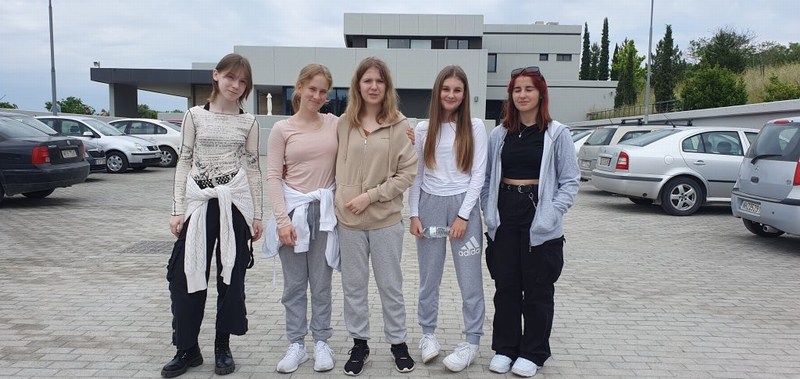
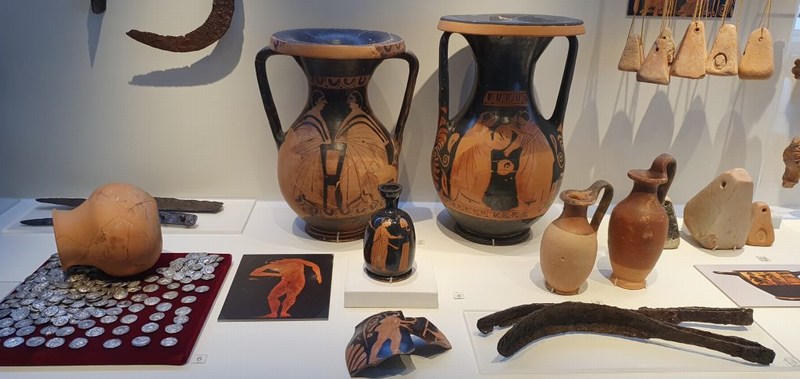
Finally, we arrived in Edessa. The town is known for its waterfalls, which were created after a great earthquake in the 14th century. They are one of the most powerful and largest in the Balkans. The Edessaios River, which has several deltas, flows through the city. People took advantage of the spring water and built several mills. During the mobility, we had the opportunity to visit the mill museum.
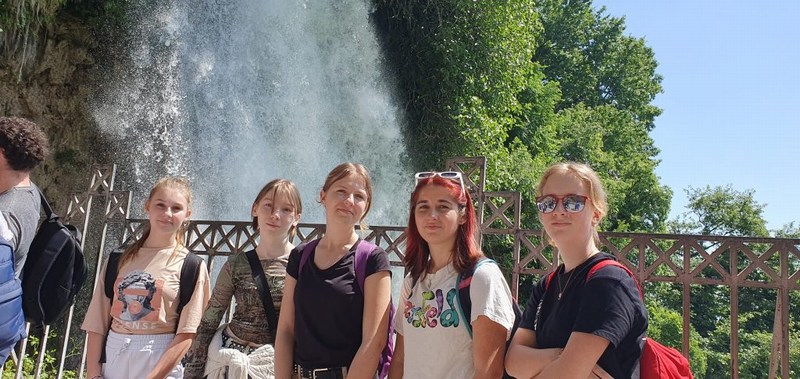
On Tuesday, Greek students welcomed us to school. We were very surprised when we heard the Slovenian national anthem, and then the Greek boys even sang our folk song Marko skače. They had extremely good pronunciation and our girls were thrilled.
Greek students honored each country with their national anthem and folk song.

We also learned about the Greek school system. When children are 4 years old, they must attend kindergarten. We found out that primary school is attended by students aged 6-12. After that, they go to high school, which lasts three years. When they turn 15, their compulsory schooling ends. Pupils can enroll in general secondary school, technical vocational schools or opt for vocational training. After finishing high school, they can choose to study at various universities.
During the mobility, we learned to prepare their simple traditional dishes with feta cheese and vegetables at the cooking workshop, danced traditional dances, and got acquainted with their music. On Thursday, representatives of local folklore groups danced for us.
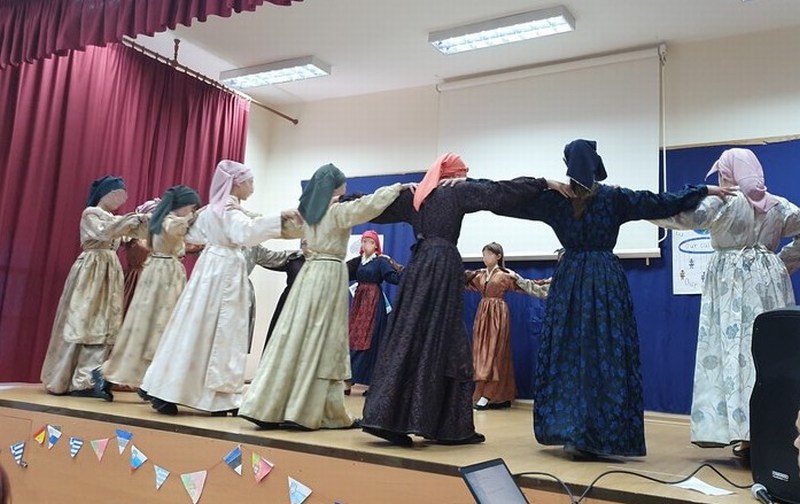
We were also interested in their fairy tales. The 4th-grade students played the folk tale The Ant and the Cricket for us, which has a deeper message: prepare today so that you will not be hungry tomorrow.
On Wednesday, we were taken to explore one of the most important Greek archaeological museums in Vergina. The tombs of several Macedonian kings were discovered here in 1977, including the tomb of Philip II, the father of King Alexander the Great, and the tomb of his son, Alexander IV. The museum was built over the tombs to keep them in their original position.
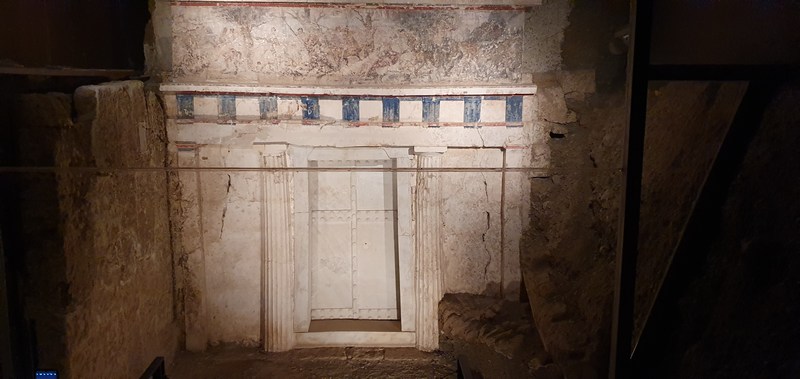
When we think of Greece, the first association for many people is the sea. Although the Edessa is not placed on the coast, our hosts took us once to the Paralia Katerinis, where we swam in the Aegean Sea. We also had a chance to swim in the thermal springs in Pozar.
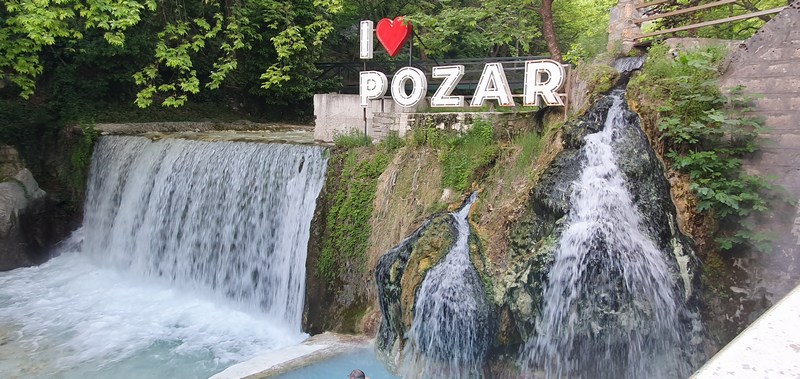

During each mobility, we explored the cuisine of the individual host country. The Greeks surprised us because they prepare different types of salads as an appetizer.

The most famous of them is the Greek salad with feta cheese and tzatziki (a dish with squeezed cucumber, Greek yogurt, and garlic). Of course, they don’t know pumpkin oil, which is typical for our part of Slovenia, instead, they season all salads with olive oil and balsamic vinegar. Olive oil is also the basis for their extremely sweet desserts. During our mobility, the parents of the Greek students surprised us by preparing Greek dishes.
On the last working day of our mobility, we drove to Meteora, which is located near the town of Kalabaka and is under UNESCO protection. On the smooth sandstone rocks, for which scientists are still not entirely sure how they were formed, reign the monasteries that were built in the 14th century for protection against Turkish invasions. Because of their location, they were safe from attacks, as monks and nuns could only enter them via a rope and a basket, which they dragged to the monastery. We visited two of the six monasteries that are preserved today. Monks live in one, and nuns in the other. We had to dress appropriately to enter. Men had to wear long pants and sleeves, and women had to wear ankle-length skirts and long sleeves. Skirts were prepared at the entrance to the monastery for the “improperly” dressed guests.
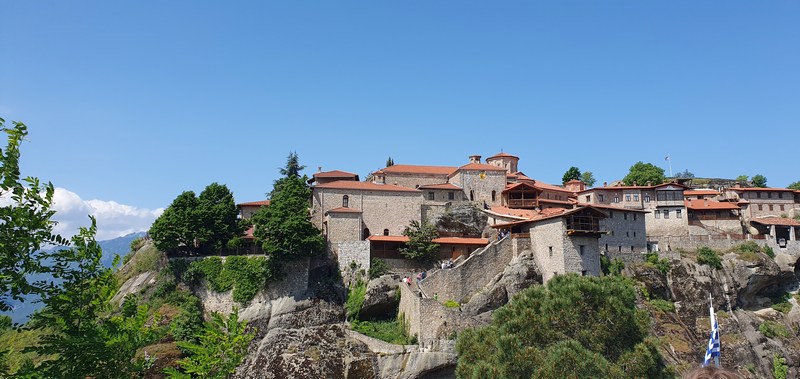
Unfortunately, the days passed too quickly and our mobility came to an end on Saturday, May 29, 2023. Since it was the last mobility in our project, we said goodbye to our hosts and other participating teachers and students. This was even more difficult for us because we become good friends.
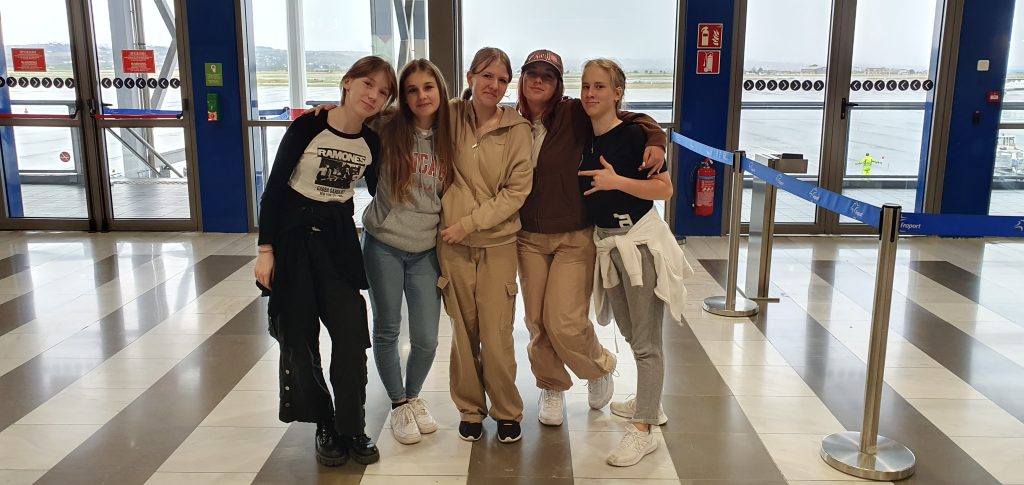
Our project lasted from September 2020 and the students grew with it for three years. It offered them many new experiences and lifelong knowledge. Students learned how to use a computer and some new applications that can make their work easier. They researched local history, dances, music, and architecture, as well as legends, fairy tales, and, last but not least, cuisine. They shared their knowledge with students from foreign countries and thus improved their knowledge of the English language. In this way, we wanted to encourage the social inclusion of our students, promote diversity and equality, support the disadvantaged, and increase the social and educational value of European cultural heritage. Teachers were able to share examples of good practices with each other and incorporate their new knowledge into their learning activities.
Although the project was carried out during the challenging time of the corona virus, we are happy that we were able to realize all the goals we set.
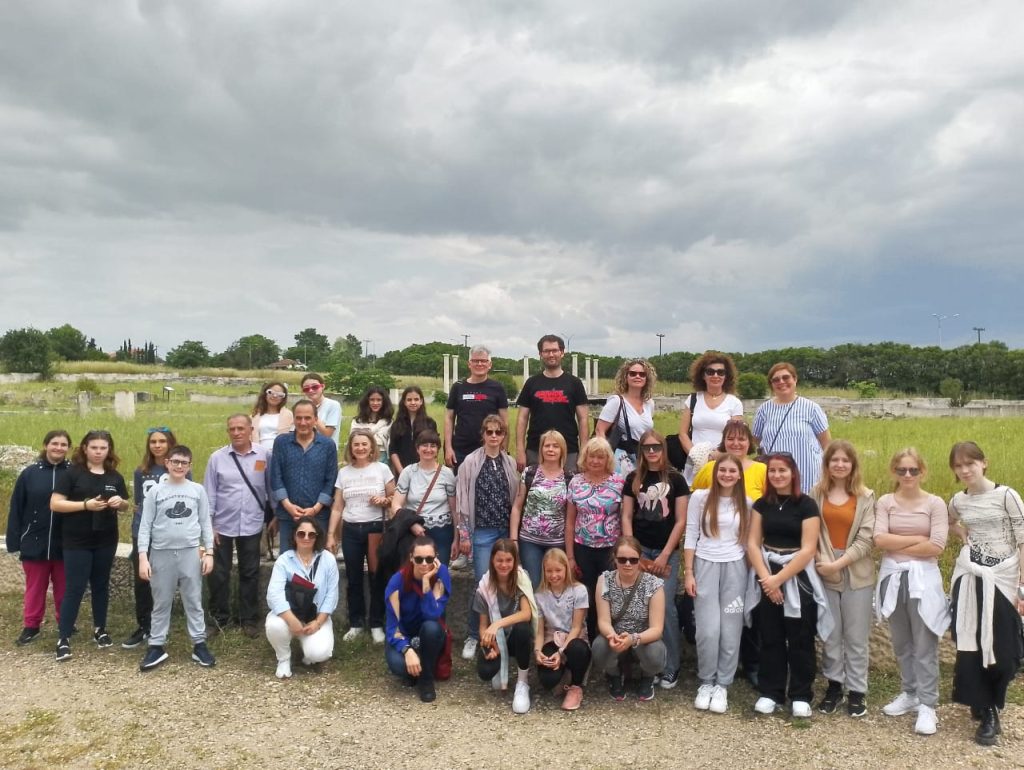
Many thanks to the Greek team for the wonderful mobility and to all our friends for the unforgettable moments of laughter and joy.
